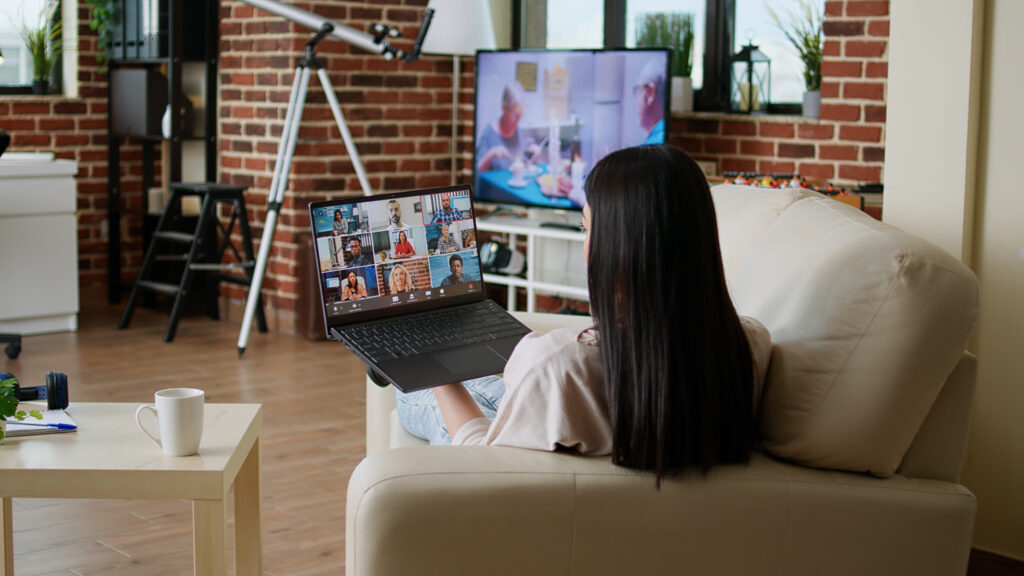Prioritize deep work over distractions
In today’s fast-moving world, Cal Newport’s “Deep Work” book gives us a clear message: focus on important stuff, not distractions. Newport tells us something interesting. Most people spend around 60% of their time at work on email and surfing the internet. But that’s not real work—it’s just feeling busy.
Deep work means really focusing on hard tasks without getting distracted. It’s during these times of deep focus that we do our best work and grow the most, both personally and professionally. But in today’s world, with all the notifications and social media, it’s hard to do.
To make deep work happen, we need to set boundaries. That means deciding when we work, turning off distractions, and making a good environment for concentrating. And we also need to change how we think about work. It’s not about doing lots of things quickly; it’s about doing things well, even if it takes time.
Choosing deep work over distractions is a big deal. It means we’re taking control of our lives and making real progress. It’s not easy, but the rewards are huge—more fulfillment, more success, and making a real impact. So let’s focus on what really matters and see how far we can go.
Experiment with deep work strategies
The monastic method requires constant elimination of distractions for total immersion. Conversely, the bimodal approach designates specific periods for deep work amidst other tasks. The rhythmic method integrates deep work sessions throughout the day, offering flexibility. Finally, the journalistic approach utilizes spare moments for focused work.
These strategies vary, catering to individual preferences and goals. Some may blend methods while others stick to one. Hosts of the podcast share their experiences, stressing the balance between intense focus and breaks. Incorporating deep work into daily routines boosts productivity and fulfillment.
In summary, experimenting with deep work methods is vital for prioritizing focus amid distractions. Finding the right approach optimizes productivity and personal growth. It’s about seizing control of time and attention, choosing meaningful work over mindless distractions for greater success and fulfillment. Let’s embrace deep work’s power to enrich our lives.
Reward yourself for small wins
The podcast transcript emphasizes the importance of rewarding oneself for small wins in order to maintain motivation and productivity. The host discusses how our upbringing has conditioned us to expect rewards for good behavior, and as adults, we should continue this practice to incentivize ourselves to continue working hard.
The host suggests that when we complete a task or project ahead of schedule, we should give ourselves credit and reward ourselves with something that our brain is craving, such as mindlessly scrolling on social media or watching entertaining videos. By allowing ourselves these breaks and rewards, we can prevent burnout and maintain a healthy work-life balance.
Furthermore, the host highlights the importance of recognizing and celebrating small victories, even if they may seem insignificant in the grand scheme of things. By acknowledging the progress we have made, no matter how small, we can boost our confidence and motivation to continue working towards our goals.
In conclusion, rewarding yourself for small wins is a crucial aspect of self-care and motivation. By taking the time to celebrate your accomplishments, no matter how minor they may seem, you can maintain a positive mindset, increase your productivity, and ultimately achieve greater success in all aspects of your life. Embracing the power of self-reward can help you stay motivated, focused, and on track towards reaching your goals.
Structured rhythmic approach to deep work
The structured rhythmic approach to deep work revolves around the intentional allocation of time for concentrated, uninterrupted work punctuated by strategic breaks for self-care. By adhering to this methodical schedule, individuals can cultivate a routine that amplifies productivity, stimulates creativity, and ultimately propels them towards success. At its core, this approach entails establishing clear boundaries and creating a dedicated workspace devoid of distractions. This environment fosters deep focus, enabling individuals to produce high-quality work efficiently.
Moreover, integrating regular breaks and self-care activities into the daily schedule is pivotal for sustaining energy levels and preventing burnout. By prioritizing moments of rest, relaxation, and physical activity, individuals replenish their mental and physical resources, enhancing their overall well-being. These intervals of respite not only promote a healthier work-life balance but also rejuvenate the mind, fostering greater creativity and problem-solving abilities during deep work sessions.
Lastly, the structured rhythmic approach underscores the importance of reflection and self-assessment. By periodically evaluating their time management practices and identifying patterns of productivity and distraction, individuals can fine-tune their approach to deep work. This introspective process empowers individuals to make informed adjustments to their schedules and habits, optimizing their efficiency and effectiveness over time. In essence, the structured rhythmic approach to deep work offers a holistic framework that harmonizes focused work, self-care, and continuous improvement, paving the way for sustained success and fulfillment.
Organized environment enhances deep work
The podcast transcript highlights the importance of having an organized environment in order to enhance deep work. The host discusses how having a two-year-old has forced them to be even more intentional with their deep work, as distractions can easily derail their focus. They mention that their deep work has to be more monastic, meaning they have to be extremely disciplined and focused in order to get anything done.
The host emphasizes the importance of knowing where everything is in their environment, as it helps them stay focused and locked in when they need to concentrate. They mention that all of their things are exactly where they keep them, in specific spaces, because it helps them with their deep work. This structured environment allows them to stay organized and avoid distractions, ultimately leading to increased productivity.
The host also references J.K. Rowling, who had to stay at a five-star hotel in order to finish the last Harry Potter book because her home environment was too hectic. This example further illustrates the importance of having a conducive environment for deep work. While not everyone may need to stay at a luxury hotel, creating a five-star environment in their own space can help individuals stay focused and in the zone.
In conclusion, the podcast highlights how an organized environment can enhance deep work by promoting focus, productivity, and creativity. By keeping their space tidy and structured, individuals can eliminate distractions and create a conducive environment for deep work. This structured approach can lead to increased efficiency, better work quality, and ultimately, greater success in achieving goals. Organizing one’s environment is a key factor in maximizing the benefits of deep work and unlocking one’s full potential.
Intentional boundaries for productivity
In the podcast, the host stress the significance of intentional boundaries for productivity. They share personal stories illustrating how setting boundaries in both physical and technological environments positively impacts focus and productivity.
One host recounts a college incident where attention to detail became crucial after a roommate used his creatine pills without asking. This highlights the importance of knowing where belongings are in one’s environment to maintain focus and control.
They also discuss the role of technology in productivity, advocating for intentional usage to avoid distractions. For instance, keeping the phone out of sight increases productivity by eliminating the temptation of notifications and social media distractions.
Overall, the podcast emphasizes creating intentional boundaries in physical and technological environments for deep work. Mindfulness of surroundings and technology enhances focus, leading to increased efficiency and better work quality. Organizing the environment promotes productivity, creativity, and ultimately, success in achieving goals.
Control your phone, not master
Furthermore, the podcast emphasizes the importance of controlling technology, specifically smartphones, to prevent them from becoming a distraction and a hindrance to deep work. The host discusses the need to monitor and control notifications, apps, and overall phone usage to maintain focus and productivity. By recalibrating notifications, organizing apps, and limiting distractions, individuals can take control of their phones and make them a sidekick rather than a master.
The host’s approach to technology reflects a conscious effort to prioritize deep work and personal time over constant connectivity and instant responses. By setting boundaries and managing notifications, the host asserts their autonomy and ownership of their time and decisions. This mindset challenges the prevailing culture of constant availability and responsiveness, advocating for a more intentional and mindful approach to technology use.
The podcast also touches on the societal pressure to always be connected and available, highlighting the importance of setting boundaries and reclaiming control over one’s attention and energy. The host’s emphasis on the need for a social media detox underscores the significance of taking breaks from technology to recharge, refocus, and regain perspective.
In conclusion, the podcast’s message of “Control your phone, not master” serves as a reminder to prioritize deep work, personal time, and mental well-being over constant connectivity and distractions. By taking control of technology and setting boundaries, individuals can enhance their focus, productivity, and overall quality of life. This intentional approach to technology use empowers individuals to make conscious decisions about how they engage with their devices and prioritize what truly matters in their lives. Ultimately, by controlling their phones and not allowing them to become masters, individuals can reclaim their time, attention, and autonomy, leading to a more fulfilling and balanced life.
Be present, eliminate distractions
The podcast also emphasizes the importance of deep connections with others and being fully present in interactions. By eliminating distractions such as phones and other technological devices, individuals can truly listen and engage with those around them, fostering stronger relationships and meaningful connections. This practice of being present with others not only enhances communication and understanding but also shows respect and consideration for the people in our lives.
Moreover, the podcast highlights the need for creating environments that support deep work and focused attention. By minimizing distractions and setting up conducive workspaces, individuals can optimize their productivity and creativity. This intentional approach to eliminating distractions and creating a conducive environment for deep work allows individuals to fully immerse themselves in their tasks and produce their best work.
In conclusion, the podcast’s message of “Be present, eliminate distractions” underscores the importance of taking control of our attention, energy, and ultimately our lives. By prioritizing deep connections, eliminating distractions, and creating conducive environments for focused work, individuals can enhance their overall well-being, productivity, and relationships. It is essential to be mindful of how we engage with technology, set boundaries, and prioritize what truly matters in order to live a more intentional and fulfilling life.
Hosts Bio
John Marshall
The Founder of Humessence, International Coaching Federation Professional Certified Coach (ICF-PCC), National Board Certified Health and Wellness Coach (NBC-HWC), co-host of The Present Professional Podcast, and experienced Yoga and meditation teacher with a highly developed business acumen. John’s ex-corporate career of nearly a decade with ExxonMobil and brief experiences with three other Fortune 100 companies enable him to combine transformational coaching practice with his global enterprise background. He has 5+ years of experience teaching Yoga and meditation and continues to teach weekly, fueling his passion for and commitment to nurturing the mind-body connection.
Tony Holmes
Tony Holmes is a leadership development and diversity professional from Houston, TX. He has managed change and scaled impact across multiple sectors as a consultant, coach, and leader. At the United Way of Greater
Houston, he designs talent programming and leads the organization’s strategy to center equity across all operations and programs. Tony is an Intellectual Contributor and Guest Facilitator for Humessence in the space of Diversity and Inclusion, and a co-host of the Present Professional Podcast.
Remember to subscribe to the podcast to catch this episode. Take a moment to drop us a rating and review. Let’s build a world of authentic connections, one workplace at a time.
Other ways to connect:
The Present Professional | Instagram
Coach John Marshall | Instagram | LinkedIn | Facebook
Coach Tony Holmes | Instagram | LinkedIn




